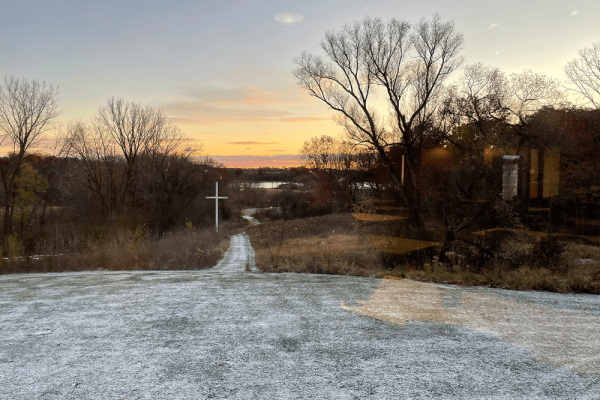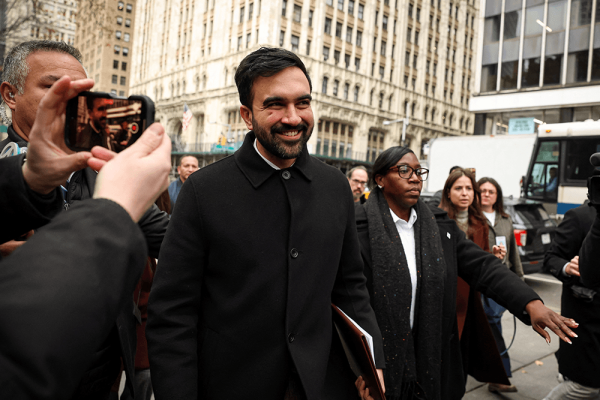When a Texas Republican congressional candidate used a flamethrower to set a Quran ablaze as part of a political ad in August, I wasn’t shocked by the act itself.
Unfortunately, burning the Quran as a political act has a long history. What made my heart sink was hearing the candidate claim the fire was “powered by Jesus Christ.” I’m not referring to the candidate by name because I do not want them to benefit politically from this act.
As a pastor whose faith has been deepened by reading the Quran, I could not help but grieve the distortion of Jesus’ name to justify desecrating a text that shares so much with the Bible.
The desecration of the Quran has been used not only as a political act but as an act of torture, such as when American service members intentionally desecrated the Quran at Guantanamo Bay in front of Muslim prisoners in 2005. High-profile instances of burning the Quran have taken place in Florida, Denmark, the U.K., and Sweden.
The candidate’s ad might be the most striking embodiment of a rising tide of anti-Muslim hate that scholars have tracked over the past two years. Instances of both antisemitism and Islamophobia have risen in the wake of the October 7 terror attacks and the subsequent genocide perpetuated by the state of Israel on the people of Gaza. That’s why this work is so important right now: Anti-Muslim hate frequently erupts in actual violence against Muslims.
It’s not hard to connect violence against a sacred object to violence against a community when the candidate herself says she “will end Islam in Texas so help me God.”
In burning the Quran in the name of Jesus, the act also set ablaze many of the same stories and teachings that are contained in the Bible—although I doubt the candidate knew that. That shouldn’t be surprising. In my experience, most Christians have little understanding of what is actually in the Quran. As a tradition that emerged after Christianity, Islam has always been in dialogue with it and has even included, with reverence, many prominent figures of Christianity—including Jesus himself.
Jesus, or Isa as the Quran refers to him, is revered as a prophet, an important role in Islam that indicates he bore a message from God. The Quran even affirms the virgin birth and says that Isa will come back at the end of all things as a harbinger of God’s judgment.
Of course, there are plenty of differences between the two texts as well, but I have found that actually wrestling with the different conceptions of God found in both the Quran and the Bible has deepened my faith. As I’ve read classic Muslim critiques of Christian ideas like the Trinity, I have not only been struck by the theological rigor and nuance of the argument, but I have also been encouraged to move beyond the simple handwave of “it’s a mystery.” It is no exaggeration to say that reading the Quran has made me a better Christian.
READ MORE: The Doubt and Faith of a Journalist, Parent, and ‘Full-Time Arab American’
Burning another religion’s holy book has nothing to do with Jesus and his central message, which revolved around the kingdom of God. But something that does involve Jesus and emphasizes his message about the kingdom of God being the transformative yeast in the dough of our shared lives is the types of interfaith learning and partnerships that are happening today among Christians and Muslims. While Jesus was uncompromising in his pursuit of truth, he respected those he came into contact with, even going so far as to have relationships with Samaritans, one of the most despised religious and social groups of his era.
When I co-founded Challenging Islamophobia Together Chicagoland with my spouse, Anna Piela, we saw interfaith work as core to the gospel’s message of love and radical hospitality. It was also a manifestation of our deep desire to draw nearer to God and become better Christians. In short, we viewed encouraging Christians to advocate for Muslims as a core part of discipleship.
That was especially true as we began to recognize the ways that the privilege of being Christian in America had shaped our religious experience. We never had to worry about shocking acts of violence at our houses of worship, whether our kids would get religious holidays off at their school, the availability of food that would meet our dietary requirements, or whether our holiest symbols would be desecrated.
It matters that Christians are the dominant group that benefits from and perpetuates Islamophobia in the United States. It matters because if we are both the main beneficiaries and perpetrators, then we have a responsibility to push for change and solutions.
The question is, how do we do this? This question is especially difficult to answer, considering that most churches have either no engagement with other religions, including Islam, or are actively hostile toward them. Unfortunately, churches can be part of the problem. They are one of the primary places where people learn about other religious traditions, and where some learn how to hate other religions. But they don’t have to be. As primary sites of religious learning, churches can also take the lead in addressing this crisis.
In response to the candidate’s ad, we’ve been bringing together Muslim communities and churches to hear the Quran read and to learn more about Islam. Hearing the Quran read aloud and meeting Muslims can help Christians come to appreciate Islam as a peer tradition worthy of respect in a time when Muslims face the most prejudice of any religious group in the United States. The work of Christians standing in solidarity with Muslims is the type of work I believe is powered by Jesus Christ. This is the work I am most interested in.
The work of Christians standing in solidarity with Muslims is the type of work I believe is powered by Jesus Christ. This is the work I am most interested in.
Whether the candidate was radicalized online or in the pew, I know that congregations are one of the most important places where people learn about other religions. That makes churches not just potential fomenters of hate, but also sites of hope. What we choose to teach about Islam will shape not only the safety of our Muslim neighbors but also our own integrity as followers of Jesus.
Got something to say about what you're reading? We value your feedback!





